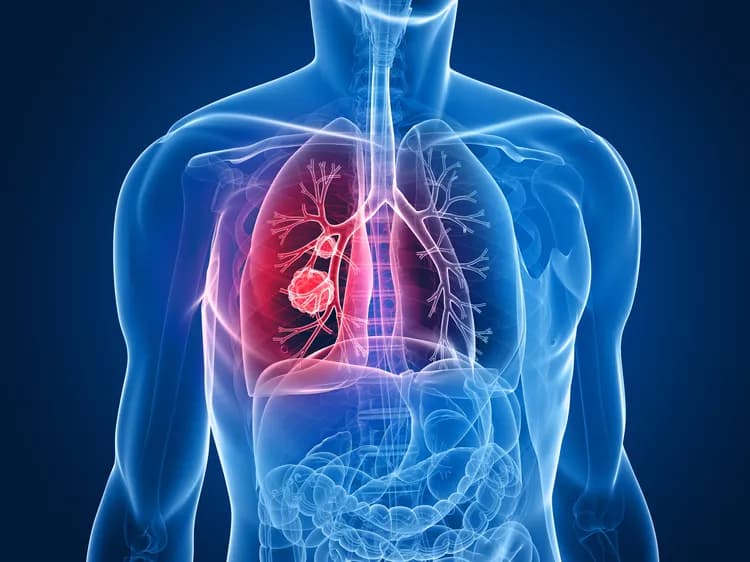Treatment of lung cancer is a challenge for the treating physicians. Depending on the stage or grade of cancer, three methods of treatment are conventionally used. These include the surgical removal of cancer mass, radiation therapy, and chemotherapy. In many cases, the patients also require long-term treatment with chemotherapy or radiotherapy, or a combination of both following surgeries. Such long-term therapy has certain side effects. It also adversely affects the quality of patients’ life. Thus, the scientific community is in constant search of newer treatment methods for better management of lung cancer, and to eliminate the side effects associated with the conventional treatment measures. Two such treatment measures being investigated are immunotherapy and targeted therapy.
Drugs used in targeted therapy specifically targets genetic changes that initiate unchecked cell growth in lung cancer patients. One of the most common genetic changes that occurs in lung cancer is linked to the Epidermal Growth Factor Receptor (EGFR) gene. The adenocarcinoma subtype of non-small cell lung cancer is frequently associated with EGFR gene mutation. Mutation of this gene causes increased cell growth, increased blood supply to the tumor cells, decrease in tumor cell destruction, all resulting in increased tumor size and spread of tumor cells to other organs.
Certain drugs that act against EGFR expression currently in use include Erlotinib, Afatinib, and Gefitinib. These drugs counteract the effect of EGFR directly and form the standard treatment option in combination with other chemotherapy medications. A better and modified version of this drug, called Dacomitinib (2nd generation), has given a new ray of hope to the treating physician.
A recent phase II clinical trial compared two generation of drugs head to head, i.e., first generation drugs, such as Gefitinib, vs. second generation drugs, such as Dacomitinib. In this study, researchers randomly assigned 452 newly-diagnosed stage III or IV EGFR positive non-small cell lung carcinoma patients, to receive either Dacomitinib or Gefitinib. It was seen that patients who received Dacomitinib had a 41% lesser chance of cancer progression. The median of progression free disease survival was found to be 14.7 months, which was five months more than the patients receiving Gefitinib. Also, the most common side effects of Dacomitinib were acne and diarrhea, whereas liver enzyme abnormalities were commonly seen with Gefitinib.
Although Dacomitinib has not yet been approved by the concerned drug authorities, these initial findings are promising for this new second-generation drug. The lead author of the study said that “Dacomitinib is a more potent, second-generation EGFR inhibitor that shares the issue of increased side effects in the skin and gastrointestinal tract, like Afatinib (Gilotrif). In spite of this, the activity seen in this study should allow for consideration of this effective therapy in this patient population”. He also expressed his concern over the side effects by saying “this study shows that Dacomitinib may be an even more effective treatment for these patients. However, patients should be aware of the need to deal with potential side effects when making treatment decisions”.
Related Articles
Test Your Knowledge
Asked by users
Related Centers
Related Specialties
Related Physicians
Related Procedures
Related Resources
Join DoveHubs
and connect with fellow professionals


0 Comments
Please log in to post a comment.